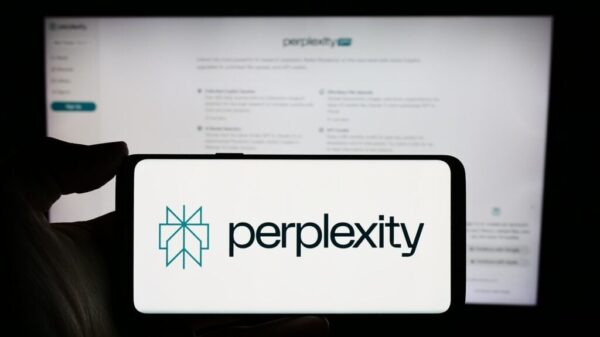In the wake of the passing of Hollywood legend Robert Redford on September 16, 2023, at the age of 89, his daughter, Amy Redford, has voiced strong objections against the surge of AI-generated tributes proliferating across social media. In a heartfelt Instagram post, she expressed that these digital recreations are “extra challenging,” advocating for greater transparency in the use of artificial intelligence and posing the poignant question, “What if this was you? Let that be your guidepost.” This outcry underscores a growing tension within the entertainment industry regarding the balance between memorializing the deceased and the exploitation of their likenesses through unchecked technological advancements.
Amy Redford, who has established her own career as an actress, director, and producer, clarified that the family has not yet held a public funeral or memorial service for her father. Misinformation in the form of fabricated AI posts, including fake quotes and images suggesting that Redford attended his own funeral, have only deepened the family’s sorrow. “These fabrications do not represent anyone in a positive light,” she stated, according to reports from The Hollywood Reporter.
The rise of AI-generated content coinciding with Redford’s death has brought forth a broader discourse on posthumous digital rights. As technologies such as deepfakes and voice synthesis become increasingly accessible, the families of public figures face unprecedented challenges. Amy Redford’s statement, which gained traction on social media platforms like X, has garnered support from various industry figures who are concerned about the ethical implications of exploiting grief through technology.
The AI Dilemma in Grief Expression
Posts featuring AI-generated videos and images of Redford, often depicting him in ethereal scenarios or delivering poignant messages, have flooded social media. Many of these posts are shared by accounts with little verification, which Amy criticized as distorting genuine tributes from friends and colleagues like Jane Fonda and Demi Moore, who offered heartfelt remembrances without digital embellishment. According to Deadline, Amy condemned these “AI fabrications” as “renderings of my dad who clearly has no say,” marking one of the first significant family responses to AI manipulation following a celebrity’s death.
Industry experts highlight that tools like Midjourney and ElevenLabs, which require minimal expertise to replicate Redford’s iconic features, contribute to this digital exploitation. Amy expressed her hope that AI will be used transparently, acknowledging that “AI isn’t going anywhere.”
Confronting Misinformation and Ethical Boundaries
Reports from People magazine noted that Amy denied the existence of any funeral, countering viral AI posts claiming otherwise. The Daily Mail Online emphasized her criticism of “fake AI funeral tributes,” which have spread misinformation at a vulnerable time. The emotional weight of Amy’s words resonates across social media, with commentators emphasizing the inconsistency of tributes that “do not honor but fabricate.” This echoes previous instances of AI recreations of deceased artists, yet Redford’s iconic status intensifies the scrutiny.
Legal experts are observing this situation closely, suggesting that Amy’s call for transparency could initiate discussions around better labeling laws for AI-generated content. Current U.S. regulations lag behind the rapid advancements in AI, highlighted by California’s AB 1836, which seeks to curb unauthorized digital replicas, though its enforcement is inconsistent across social media platforms.
Shifting the Narrative on Digital Legacy
The recent contracts by SAG-AFTRA include protections against the misuse of AI, yet these primarily focus on living performers. The rights of deceased individuals remain ambiguous, usually governed by estate wills. Robert Redford, a co-founder of the Sundance Institute and an advocate for independent cinema, has left his family in a position that challenges the commodification of his legacy through synthetic media.
Amy Redford’s pleas for ethical AI usage have resonated within the industry, as illustrated by the significant engagement on social media posts from outlets like The Hollywood Reporter. While there has been a backlash against AI-generated tributes in other celebrity cases, Redford’s situation stands out due to its immediacy, with AI content overshadowing authentic remembrances shortly after his passing.
For industry stakeholders, this moment signals the necessity for proactive digital legacy strategies. Major studios like Disney and Warner Bros., stewards of extensive likeness archives, are increasingly pressed to disclose AI usage in their projects. Amy’s advocacy aligns with growing demands from organizations like the Directors Guild and Writers Guild for watermarking synthetic content to distinguish it from authentic tributes.
As AI continues to evolve, Robert Redford’s story may serve as a catalyst for policy shifts regarding the ethical use of technology in commemorating public figures. The Redford family’s confrontation with AI-generated tributes and fake funerals is a universal cautionary tale that resonates far beyond Hollywood.
Amy Redford’s intervention highlights the human cost of unregulated AI creativity. While fans may have good intentions, the lack of consent transforms the act of mourning into a spectacle. Her message, urging empathy and reflection, serves as a reminder that genuine tributes must originate from reality, not algorithms.
 Google’s Gemini 3 Launches with Unmatched Multimodal Capabilities, Surpassing Competitors
Google’s Gemini 3 Launches with Unmatched Multimodal Capabilities, Surpassing Competitors SoulGen Launches 2.0 with 38.2% Improvement in Human Motion Accuracy and 73.7% in Color Fidelity
SoulGen Launches 2.0 with 38.2% Improvement in Human Motion Accuracy and 73.7% in Color Fidelity World Labs Launches Marble AI, Transforming 3D World Creation for Gaming and Design
World Labs Launches Marble AI, Transforming 3D World Creation for Gaming and Design India Mandates AI-Generated Media Labeling, 24-Hour Takedown Rules for Digital Platforms
India Mandates AI-Generated Media Labeling, 24-Hour Takedown Rules for Digital Platforms Five Lawsuits Claim ChatGPT’s Guidance Led to Wrongful Deaths Amid AI Safety Concerns
Five Lawsuits Claim ChatGPT’s Guidance Led to Wrongful Deaths Amid AI Safety Concerns

































































